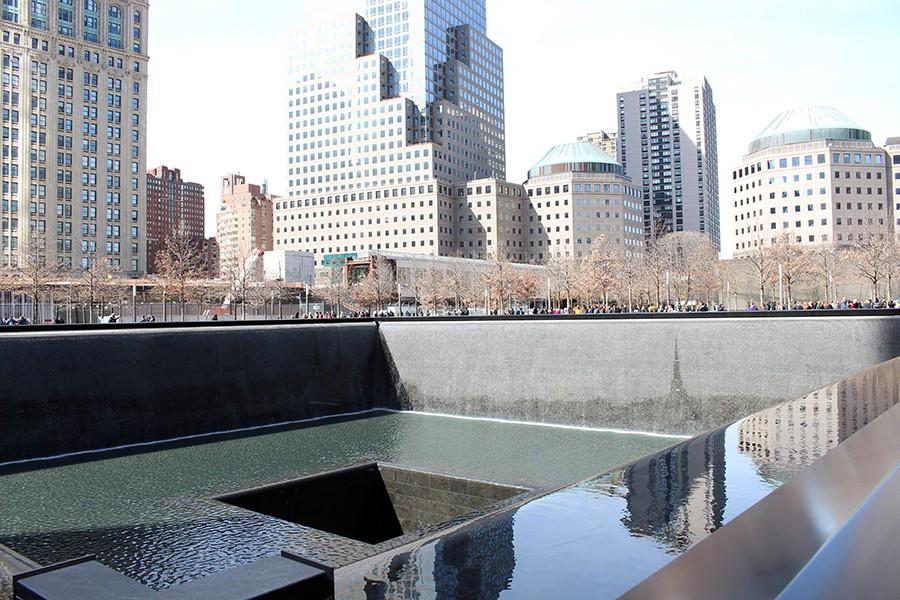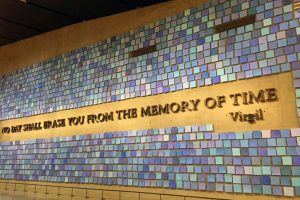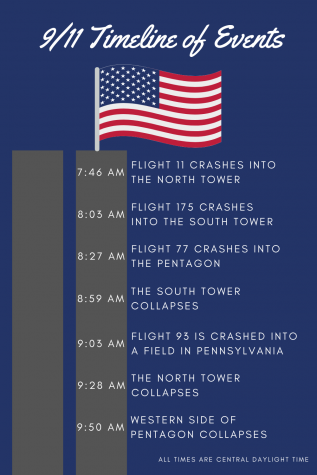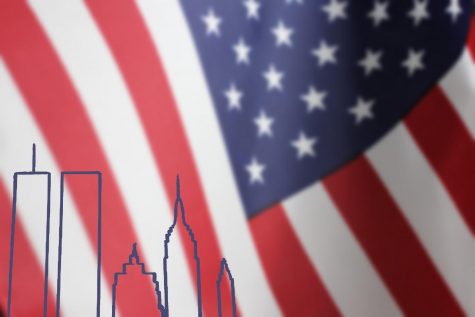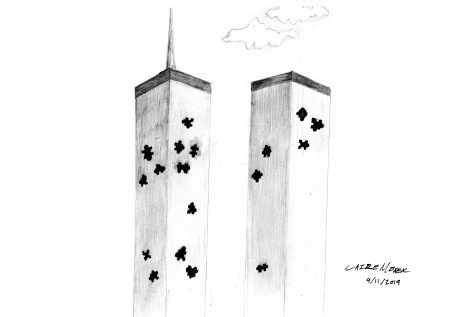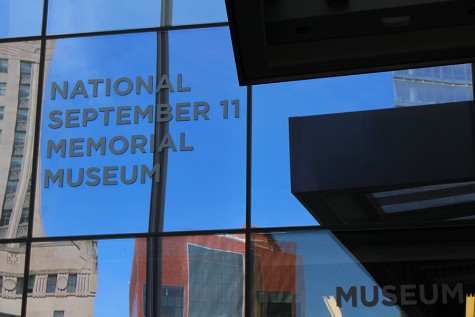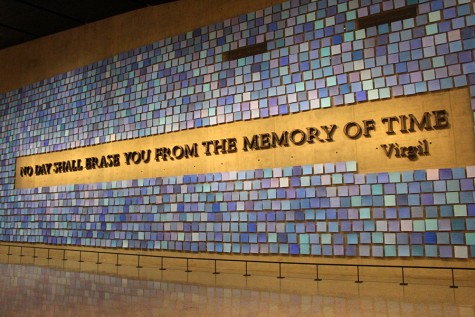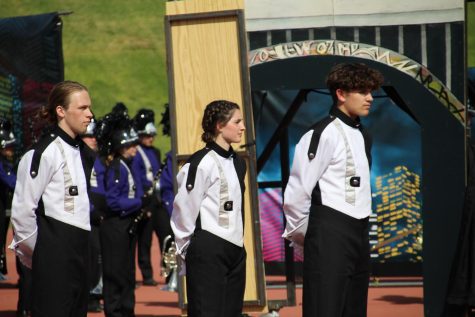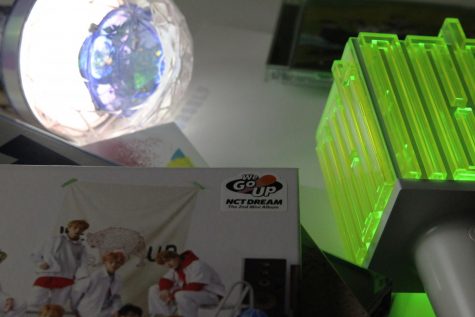9/11 Museum evokes emotion in a detached perspective
The reflecting pools sit surrounded by New York streets and skyscrapers.
The initial explosion and the confusion. The second explosion and the horror. Screams rising as debris fell, the city becoming enshrouded in darkness as plumes of smoke erupted from the collapsing buildings. I remember the pictures, the videos, the news broadcasts. But in reality, they are all I remember.
The memories of 9/11 are not mine. They do not belong to me or my generation. For a long time, my only connection was the screen of a computer or television, but it was also my separation. It was difficult to understand tragedy when it played out like a scene from a movie, ultimately intangible. It was this detachment that yielded my sense of apathy. Reduced to just another date in history, 9/11 had become two numbers with no understood relevance to me as an individual. I carried this mindset with me when I visited the 9/11 Museum and Memorial.
The memorial seemed like visiting any other monument or tourist attraction in New York City, but it felt different. The smiles of tourists posing for pictures greatly contrasted the real emotion behind the thousands of names they stood before. It was almost superficial, and I was uncomfortable. I knew the emotional response the monument should have evoked, but I didn’t recognize it in the people around me, and I realized I didn’t even recognize it in myself. There was a rift between my head and my heart; despite understanding, logically, the tragedy that took place where I stood, I couldn’t understand it emotionally. But this all changed when I entered the museum.
To say my perspective was changed is incorrect. I was given a perspective in the museum. The displays of artifacts told a different story than that of what I was taught once a year in a school classroom. The artifacts were entirely personal, and it felt as if to know the displays was to know the victims. The death and the loss were made real by the material objects no longer seen behind a screen but in person. The emotional effects were just as real in that moment. I felt sadness and despair and ultimately what can only be described as anger. I was so upset by what I saw in front of me. The people who were injured, the people who died, the people who lost their loved ones–they didn’t deserve what happened to them. They deserve to be remembered and mourned. I began to cry silently, completely overwhelmed by emotion, I quickly finished walking through the museum and joined the group I accompanied in New York. Most sat in silence, boredom, or indifference, and again I became upset. Why didn’t they feel it too? Why didn’t they understand? But how could I blame them? I was of the same mindset only minutes before.

Hello! My name is Lauren and I am a junior. This is my second year on the Eagle’s Tale staff, I am the new co-editor of Key Club, and a member of Chamber choir. I am invested in the arts, and spend my free time listening to K-pop and drawing. I hope...

